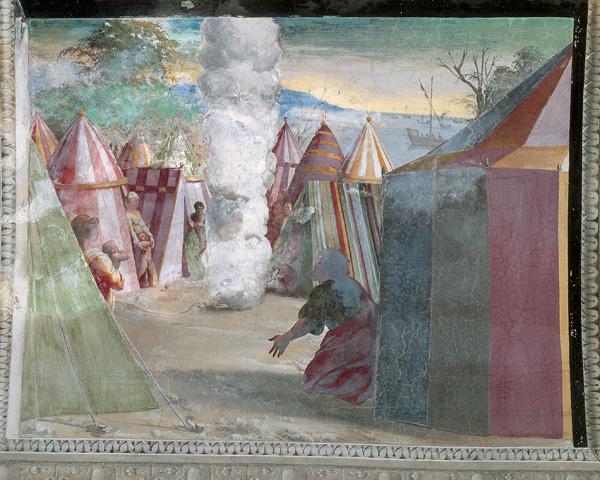Image Details

Scala/Art Resource, NY
Bucking the system. Like a science experiment gone wrong, a pillar of smoke is all that remains of two of Aaron’s sons, Nadav and Avihu, who have just made an impromptu incense offering—a “strange fire that had not been commanded” (Leviticus 10:1)—in this 16th-century fresco by a follower of the painter Raphael. Aaron’s successful sacrifice earlier the same day, which had made the new Tabernacle cult operational, had strictly adhered to the rules handed down on Sinai. His sons’ sad fate shows that the system now in place will not brook any breaches in the strict order of holiness and impurity that God has commanded.
The laws governing sacrifice were supposedly revealed to the Israelites all at once in the desert during the Exodus. But as Bibb argues, the fifth- and sixth-century editors of the law books of the Pentateuch were synthesizing and arranging a variety of preexisting local religious traditions.
